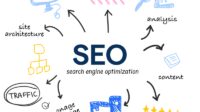The corporate environment is being fast changed by artificial intelligence (AI). From automating chores to providing insights from enormous volumes of data, artificial intelligence is enabling companies to run more effectively, make better decisions, and finally realize more success. AI business solutions are a broad spectrum of technology and services meant to use artificial intelligence to solve certain corporate problems and possibilities.
Types of AI Business Solutions
There are numerous types of AI business solutions available, each catering to different needs. Some common examples include:
- Machine learning (ML): is the ability of ML systems to discover patterns, make predictions, and over time enhance their performance from data without explicitly programming. Applications ranging from fraud detection to consumer churn prediction rely on ML in a variety of ways including product suggestion.
- Natural language processing (NLP): lets computers comprehend and evaluate human discourse. NLP finds utility in sentiment analysis, virtual assistants, and chatbots.
- Computer vision: Computer vision lets computers decipher and extract data from digital photos and movies. Applications ranging from facial recognition to medical picture analysis to driverless cars make use of computer vision.
- Robotic process automation (RPA): or robotic process automation, automates often human-performed repetitious operations. Data input, form filling, and customer service contacts are among the chores RPA may help to automate.
These are but a few of the several kinds of artificial intelligence business solutions accessible. Years to come will see even more creative ideas arising as artificial intelligence technology develops.
Key Components for Successful AI Implementation
To ensure a successful AI implementation, several key components are essential:
- Data: Since artificial intelligence systems are data-driven, their effectiveness depends critically on the quality and volume of data consumed for training. Companies must have strategies for gathering, organizing, and controlling data for artificial intelligence uses.
- Talent: Projects using artificial intelligence call for a team of engineers, data scientists, and domain specialists among other diverse skill sets. To support their AI projects, companies might have to make training or new personnel hiring investments.
- Infrastructure: Applications of artificial intelligence might call for large storage capacity and computational capability. Companies must make sure their infrastructure is set up to enable their AI implementations.
- Strategy: Clearly defined plans for the usage of artificial intelligence toward corporate objectives are crucial. Along with creating a plan to gauge the performance of AI projects, this approach should incorporate determining particular use cases for artificial intelligence.
By carefully considering these factors, businesses can increase their chances of successfully implementing AI solutions.
Addressing Common Misconceptions about AI
Although artificial intelligence brings a lot of advantages, several frequent misunderstandings should be addressed. For example, artificial intelligence is not meant to totally replace human workers. Rather, it seeks to raise human capacity and free time for more strategic activities. Here are some more typical misunderstandings regarding artificial intelligence.:
- AI is too expensive for small businesses: As artificial intelligence solutions becoming more reasonably priced, companies of all kinds may now access them thanks to several cloud-based options.
- AI is a black box: Although certain artificial intelligence models can be complicated, various methods allow one to understand how AI models reach their choices. This helps to guarantee openness and trust in artificial intelligence uses.
- AI will take over the world: Though it is neither aware or sentient, artificial intelligence is a great instrument. AI systems are ultimately under human control; they can only act as they have been taught to do.
Understanding these myths can help companies decide how best to use artificial intelligence to their benefit.
Benefits of AI Business Solutions

Using artificial intelligence business solutions has clearly benefits. Here is a closer view at some of the most important advantages:
- Increased Efficiency: By automating monotonous chores, artificial intelligence frees human workers to concentrate on more significant duties. Productivity and efficiency can therefore be much raised.
- Improved Decision-Making: Analyzing enormous volumes of data, artificial intelligence can spot trends and patterns that would be hard for humans to perceive. From marketing campaigns to product development, this may enable companies decide on anything better.
- Enhanced Customer Experience: Personalizing the client experience, offering 24/7 customer service, and promptly addressing consumer problems are just three uses for artificial intelligence.
- Reduced Costs: Through automation, increased productivity, and process optimization, artificial intelligence may help companies cut expenses.
- Competitive Advantage: By allowing companies to innovate quicker, create new goods and services, and increase their operational efficiency, artificial intelligence may assist them to acquire a competitive edge.
Although usually connected with big companies, artificial intelligence is more and more available and helpful for small companies. The secret is to find the correct tools and apps fit for certain company requirements.
- AI-Powered Marketing: Small firms may use artificial intelligence for social media management, email marketing automation, and consumer segmentation among other chores. Tools may examine consumer data to spot patterns, customize marketing initiatives, and sharpen targeting.
- Financial Management: Financial applications enabled by artificial intelligence can simplify invoicing, expenditure management, and accounting. Predictive analytics can project cash flow, spot possible hazards, and help to maximize financial choices..
- Customer Service: Instant customer help, answers to often asked queries, and even basic transaction handling are capabilities of AI-powered chatbots This raises customer satisfaction and releases human agents for challenging problems.
- Operational Efficiency: Artificial intelligence can maximize supply chains, inventory control, and scheduling. AI can, for example, forecast demand, maximize worker ratios, and minimize stock outs.
Small enterprises especially depend on overcoming obstacles such limited finances and technical knowledge. Constant learning, alliances with AI experts, and cloud-based artificial intelligence technologies help to close these gaps.
AI Consulting and Services
AI consulting companies provide priceless knowledge for companies looking for more advanced integration of artificial intelligence. These companies may evaluate company needs, create artificial intelligence plans, apply solutions, and offer continuous support.
Key services offered by AI consulting firms include:
- AI Strategy Development: Defining clear AI goals, identifying potential use cases, and creating a roadmap for implementation.
- Data Analysis and Preparation: Ensuring data quality, cleaning, and structuring for AI models.
- AI Model Development and Training: Building and refining AI models tailored to specific business requirements.
- AI Implementation and Integration: Integrating AI solutions into existing systems and workflows.
- AI Performance Monitoring and Optimization: Continuously evaluating AI models and making necessary adjustments.
Selecting the suitable artificial intelligence partner is crucial. When choosing an AI consulting company, weigh industry knowledge, project portfolio, and communication abilities.
Best AI Business Solutions
The best AI solution depends on specific business goals, industry, and available resources. Some factors to consider when evaluating AI solutions include:
- Scalability: The ability to handle increasing data volumes and processing demands as the business grows.
- Ease of Use: User-friendly interfaces and minimal technical expertise required.
- Integration Capabilities: Compatibility with existing systems and software.
- Cost-Effectiveness: Balancing the cost of the solution with the expected return on investment.
- Security and Privacy: Robust data protection measures.
By carefully evaluating these factors, businesses can select AI solutions that deliver maximum value.
AI and the Future of Business
Rapid evolution of artificial intelligence will have ongoing effects on businesses. Emerging trends such generative artificial intelligence, edge computing, and artificial intelligence ethics will define AI uses going forward.
To be competitive, companies have to keep updated on these changes. Thriving in the digital era mostly depends on embracing artificial intelligence and encouraging innovation in culture.
Conclusion
For companies of all kinds, artificial intelligence business solutions have great promise. Organizations may open fresh prospects, increase efficiency, and get a competitive edge by knowing the advantages, dispelling common misunderstandings, and carefully choosing the correct artificial intelligence solutions. Companies which embrace artificial intelligence will be positioned for long-term success as this technology develops.
- Influencer Marketing Trends - August 14, 2024
- Search Engine Optimization Techniques - August 14, 2024
- Marketing Automation Platforms - August 14, 2024







